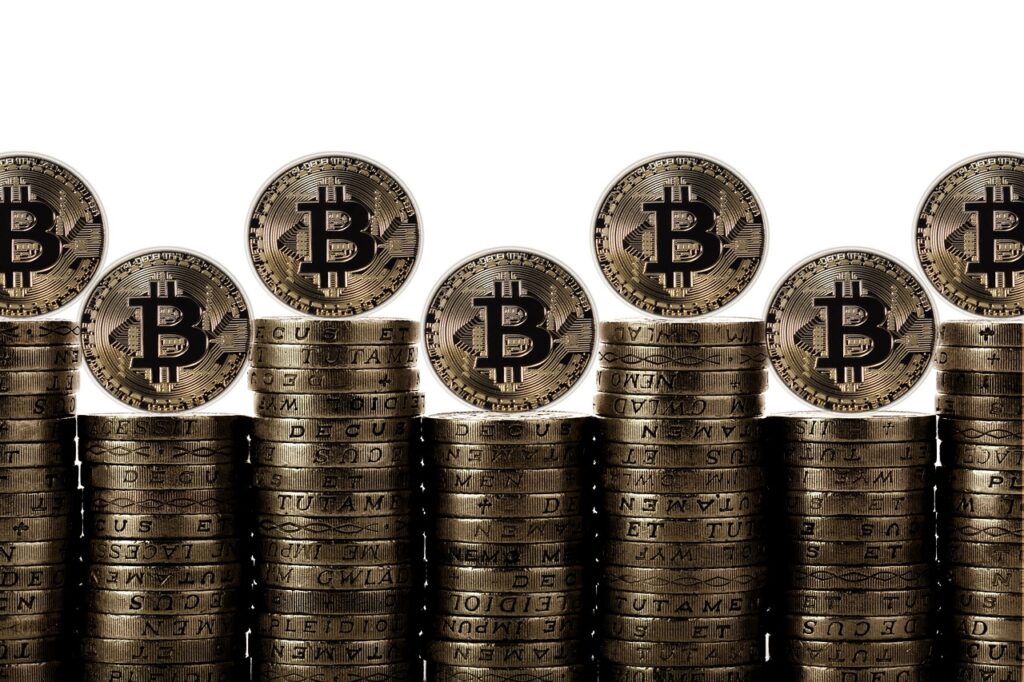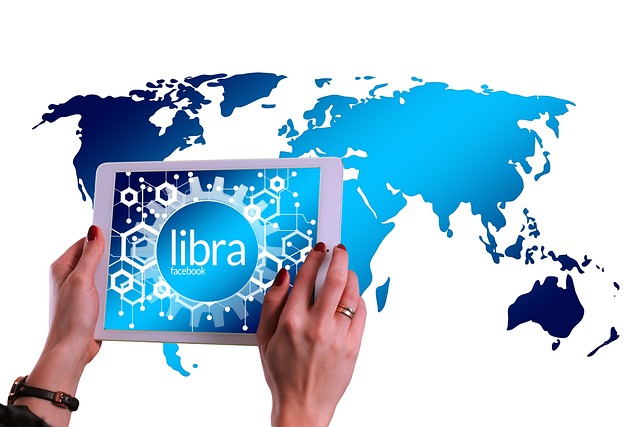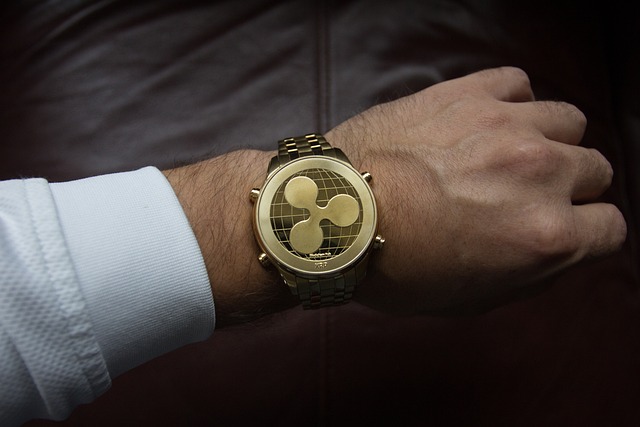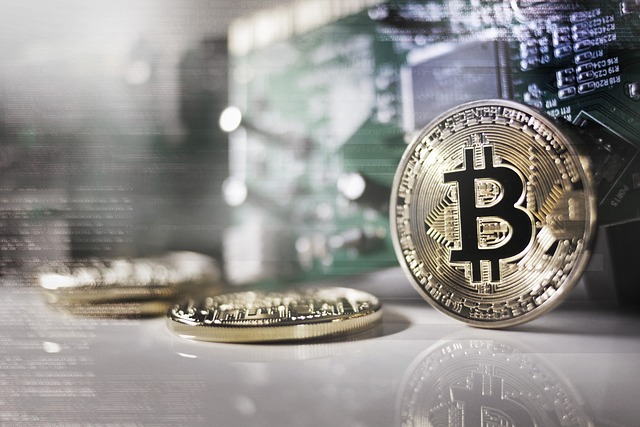The Blueprint of Decentralized Finance Architecture: A Detailed Overview
The Blueprint of Decentralized Finance Architecture: A Detailed Overview

DeFiSunday Spotlight:
The complete crypto trading experience - Trade & earn with ease! Maximize your crypto assets with Uphold’s secure, easy-to-use app.
Uphold is a multi-asset digital money platform offering financial services to a global market. Uphold's unique ‘Anything-to-Anything’ trading experience enables customers to trade directly between asset classes with embedded payments facilitating a future where everyone has access to financial services.
Special Offer - Start with Just 1 Dollar.
The Rise of Decentralized Finance: Exploring the Evolution of Financial Systems
Decentralized finance, also known as DeFi, has rapidly emerged as a disruptive force in the traditional financial system. It represents a paradigm shift, challenging the established norms and intermediaries that have long dominated the world of finance.

One of the key drivers behind the rise of DeFi is the desire to empower individuals and eliminate reliance on centralized authorities. Traditional financial systems have often been criticized for their exclusionary practices and lack of accessibility. DeFi aims to address these issues by leveraging blockchain technology to create an open and permissionless financial ecosystem. This allows individuals from all walks of life to participate in financial activities, such as lending, borrowing, and trading, without needing to rely on traditional banks or intermediaries.

The Core Principles of Decentralized Finance: Empowering Individuals and Eliminating Intermediaries
Decentralized finance operates on the core principles of empowering individuals and eliminating intermediaries. By leveraging blockchain technology, individuals have the opportunity to directly control their financial assets and transactions, instead of relying on centralized institutions like banks. This shift in power allows for greater financial inclusivity, as anyone with internet access can participate in decentralized finance regardless of their geographical location or financial status. It also enables individuals to bypass traditional hurdles, such as lengthy approval processes and restrictions imposed by financial institutions, giving them more autonomy over their money.
One of the main advantages of decentralized finance is the elimination of intermediaries. Traditional financial systems often involve multiple intermediaries, such as banks, brokers, and other third parties, which add layers of bureaucracy and fees to transactions. However, decentralized finance applications, built on smart contracts, eliminate the need for these intermediaries, facilitating peer-to-peer transactions. This not only reduces costs but also increases the efficiency of financial interactions. Through the use of smart contracts, trust is established through code and algorithms rather than the reliance on centralized entities, making transactions faster, cheaper, and more transparent for all parties involved.
Smart Contracts: The Foundation of Decentralized Finance Applications
Smart contracts are the backbone of decentralized finance (DeFi) applications. These self-executing contracts are built on blockchain technology and are programmed to automatically execute when certain conditions are met. The use of smart contracts eliminates the need for intermediaries, such as banks or lawyers, as the terms of the contract are written directly into the code.
One key benefit of smart contracts is their ability to increase efficiency in financial transactions. Traditional financial systems often involve multiple parties and layers of intermediaries, which can slow down the process and add unnecessary costs. With smart contracts, transactions can be executed instantly and securely, without the need for manual intervention. This not only saves time but also reduces the potential for human error and fraud.
Decentralized Exchanges: Redefining the Way We Trade and Swap Assets
Decentralized exchanges have emerged as a game-changer in the world of trading and asset swapping. Unlike traditional centralized exchanges that rely on intermediaries to facilitate transactions, decentralized exchanges operate on a peer-to-peer basis, allowing users to interact directly with each other. This eliminates the need for intermediaries such as brokers or clearinghouses, streamlining the trading process and reducing costs.
One of the key advantages of decentralized exchanges is the increased transparency they offer. Transactions on these platforms are recorded on a public blockchain, which allows anyone to view and verify the transaction history. This level of transparency not only provides a secure environment for trading but also gives users a sense of control and confidence in the trading process. Additionally, the absence of intermediaries ensures that users have full ownership and control over their assets, mitigating the risk of funds being frozen or subjected to external regulations. With decentralized exchanges, individuals can now trade and swap assets directly, redefining the way we engage in financial transactions.
Decentralized Lending and Borrowing: Accessing Capital Without Traditional Banks
Decentralized Lending and Borrowing revolutionizes the way individuals access capital by eliminating the need for traditional banks. With the rise of decentralized finance, people now have the opportunity to participate in lending and borrowing activities directly through blockchain-based platforms. This innovative approach removes the intermediaries, offering a more efficient and accessible system for individuals to obtain loans or lend their funds.
One of the key advantages of decentralized lending and borrowing is the increased accessibility it provides. Traditional banks often have stringent eligibility criteria, making it challenging for certain individuals or small businesses to secure loans. However, decentralized finance platforms allow borrowers to tap into a global network of lenders, without the need to meet restrictive criteria. As a result, individuals who may have been excluded from the traditional banking system can now access the capital they need to start a business, fund projects, or address personal financial needs. Furthermore, lenders have the opportunity to earn attractive interest rates on their funds by providing loans directly to borrowers, consequently cutting out the middlemen. This two-way approach not only benefits borrowers but also offers an alternative investment opportunity for those with excess capital.
Decentralized Stablecoins: Ensuring Stability in a Volatile Crypto Market
Stability is a crucial aspect in any financial market, and the volatile nature of the crypto market has been a deterrent for many potential users. However, decentralized stablecoins are stepping in to provide a solution. These digital currencies aim to maintain a stable value by pegging their worth to an underlying asset like a fiat currency, gold, or even other cryptocurrencies. By doing so, decentralized stablecoins provide users with a reliable medium of exchange and store of value within the crypto ecosystem.
One of the key advantages of decentralized stablecoins is their ability to mitigate the risks associated with price fluctuations, thereby creating a sense of certainty for users. Unlike traditional cryptocurrencies such as Bitcoin or Ethereum, which are highly susceptible to market volatility, stablecoins are designed to hold their value. This stability can facilitate increased adoption of cryptocurrencies by enabling users to transact with confidence, knowing that the value of their digital assets will remain steady. Moreover, decentralized stablecoins offer a level of accessibility and inclusivity that traditional financial systems often lack, as they can be easily transferred and utilized across borders without the need for intermediaries or excessive fees.
Decentralized Insurance: Protecting Digital Assets in the World of DeFi
Decentralized insurance is becoming an indispensable component of the rapidly evolving world of decentralized finance (DeFi). In this digital realm, where cryptocurrencies and other digital assets are vulnerable to hackers and other risks, the need for protection is paramount. Traditional insurance models often fall short in covering these new forms of assets, leaving individuals and businesses exposed to substantial losses.
However, decentralized insurance platforms are stepping in to fill this crucial gap. These platforms utilize blockchain technology and smart contracts to provide users with transparent and automated insurance solutions.

• Decentralized insurance is essential in the world of DeFi, where digital assets are vulnerable to risks.
• Traditional insurance models often do not cover these new forms of assets, leaving individuals and businesses exposed to losses.
• Decentralized insurance platforms use blockchain technology and smart contracts for transparent and automated solutions.
• By pooling risks through decentralized networks, policyholders can cover a wide range of digital assets.
• This approach eliminates intermediaries, reducing costs and increasing efficiency in the insurance process.
Decentralized Asset Management: Maximizing Returns Through Automated Strategies
Decentralized asset management, within the realm of decentralized finance (DeFi), offers a unique opportunity for individuals to maximize their returns through automated strategies. Unlike traditional asset management approaches that require intermediaries, decentralized asset management empowers users to directly control their investments and make autonomous decisions. With the use of smart contracts, individuals can automate various investment strategies, such as portfolio rebalancing and dollar-cost averaging, without relying on human intervention.
By leveraging automated strategies, decentralized asset management allows users to eliminate emotions and biases from their investment decisions. This can be particularly beneficial in volatile markets, where knee-jerk reactions to price movements often lead to losses. Instead, decentralized asset management offers a systematic and disciplined approach to investing, ensuring that investment decisions are based on predetermined rules and algorithms. Moreover, since these strategies are executed on the blockchain, they are transparent, verifiable, and resistant to manipulation, providing users with an added layer of trust and security in managing their assets.
Decentralized Governance: Giving Users a Voice in Decision-Making Processes
Decentralized governance in the world of finance has emerged as a powerful tool for giving users a voice in decision-making processes. Traditionally, decision-making in financial systems has been centralized, with a handful of entities holding the power to shape policies and make crucial choices. However, through the advent of decentralized finance (DeFi), this paradigm is shifting towards empowering individuals and democratizing the decision-making process.
In decentralized governance, users are given the opportunity to actively participate in shaping the future of the financial ecosystem. Through voting mechanisms and consensus protocols, individuals can voice their opinions, propose changes, and collectively decide on important matters. This not only fosters transparency and inclusivity but also promotes a sense of ownership among users. With decentralized governance, the power to shape the direction of the financial system is no longer limited to a select few, but rather accessible to all participants, creating a more democratic and equitable framework.
The Future of Decentralized Finance: Challenges and Opportunities Ahead
While decentralized finance has made significant strides in recent years, there are still several challenges that lie ahead. One of the main hurdles is regulatory uncertainty. As governments around the world grapple with how to classify and regulate decentralized finance, it creates a climate of uncertainty for both users and businesses. Without clear guidelines, it becomes difficult for projects to operate within the confines of the law and for users to feel confident in engaging with decentralized finance platforms.
Another challenge is scalability. As more users flock to decentralized finance platforms, the demand for transactions and processing power increases. However, many current decentralized finance protocols struggle to handle high volumes of transactions, resulting in slower processing times and higher fees. This scalability issue hinders the widespread adoption of decentralized finance and limits its potential to revolutionize the financial industry.
Despite these challenges, the future of decentralized finance holds immense opportunities. As technology continues to advance, there is a potential for improved scalability and faster transaction processing. Additionally, as regulators become more familiar with decentralized finance, clearer guidelines and regulations may emerge, providing a more stable and secure environment for users and businesses to operate in.
Furthermore, decentralized finance opens up access to financial services for individuals who are underbanked or unbanked. With decentralized lending and borrowing platforms, individuals can access capital without relying on traditional banks, empowering them to pursue their financial goals.
In conclusion, while the future of decentralized finance faces obstacles in terms of regulatory uncertainty and scalability, there are also promising opportunities for growth and innovation. By addressing these challenges, decentralized finance can continue to further democratize the financial industry and provide individuals with greater financial freedom.
What is decentralized finance (DeFi)?
DeFi refers to a financial system that operates without the need for intermediaries like banks. It aims to empower individuals by giving them direct control over their assets and transactions.
How does DeFi differ from traditional finance?
Traditional finance relies on centralized institutions like banks to facilitate transactions and manage assets. DeFi, on the other hand, utilizes blockchain technology and smart contracts to create transparent, secure, and automated financial applications.
What are smart contracts?
Smart contracts are self-executing contracts with predefined rules written in code. They automatically execute transactions when the specified conditions are met, eliminating the need for intermediaries and ensuring trust and transparency.
What are decentralized exchanges (DEXs)?
Decentralized exchanges are platforms that allow users to trade and swap cryptocurrencies directly with each other, without the involvement of intermediaries. This eliminates the need for a central authority and reduces the risk of hacking or manipulation.
How does decentralized lending and borrowing work?
Decentralized lending and borrowing platforms enable users to lend their digital assets to others in exchange for interest or borrow assets by providing collateral. This allows individuals to access capital without relying on traditional banks or credit institutions.
What are decentralized stablecoins?
Decentralized stablecoins are cryptocurrencies designed to maintain a stable value by pegging them to a specific asset or a basket of assets. They provide stability in the volatile crypto market and enable users to transact with confidence.
How does decentralized insurance protect digital assets?
Decentralized insurance platforms offer coverage for digital assets against risks such as hacks, scams, or smart contract failures. By leveraging blockchain technology, they provide transparency, efficiency, and trust in the insurance process.
What is decentralized asset management?
Decentralized asset management involves using automated strategies, often powered by artificial intelligence or machine learning, to manage and invest digital assets. This maximizes returns while reducing the need for human intervention.
What is decentralized governance in DeFi?
Decentralized governance gives users a voice in decision-making processes related to the development and management of DeFi protocols. It allows stakeholders to participate in voting, proposing changes, and shaping the future of the decentralized finance ecosystem.
What challenges and opportunities lie ahead for DeFi?
While DeFi offers exciting possibilities, it also faces challenges such as scalability, security, and regulatory concerns. However, the potential to democratize finance, increase financial inclusivity, and revolutionize traditional systems presents immense opportunities for the future of decentralized finance.
Todays Featured Product:
Buy, exchange and grow your crypto securely with a Ledger hardware wallet, combined with the Ledger Live app. It’s never been easier to keep your crypto safe and accessible. Buy direct from Ledger.com and get todays Special Offers Here.




